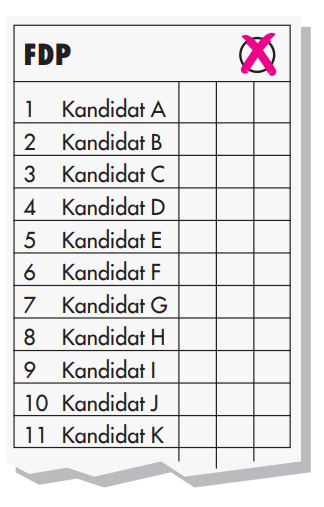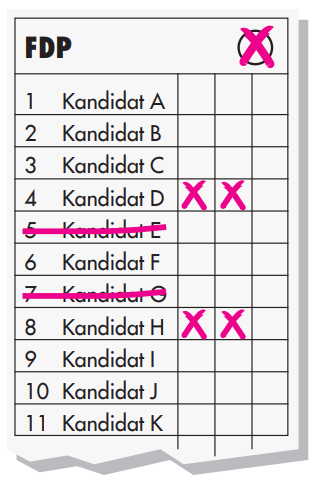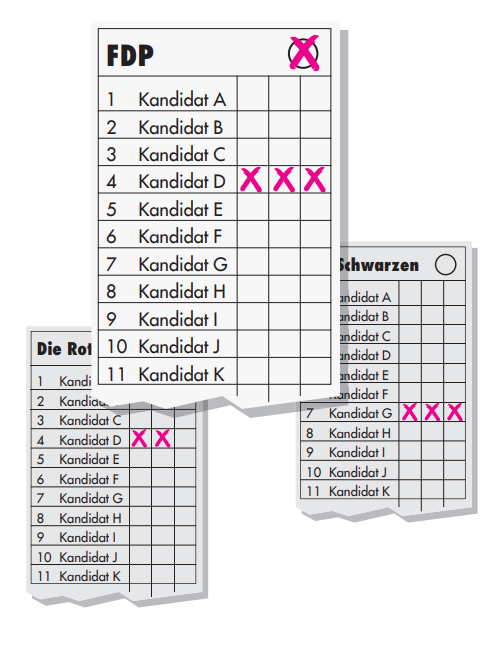Voting for EU / Non-EU Citizens in the 2021 local election
As you may know, the Local elections (“Kommunalwahlen”) in Hessen will take place on the 14 March 2021 where
- the City parliament of Kronberg (“Stadtverordnetenversammlung”),
- the Local council for the 3 districts Kronberg, Schönberg and Oberhöchstadt (“Ortsbeirat”)
- the District Parliament of the Hochtaunuskreis and
- the Foreigners‘ Advisory Councils (“Ausländerbeirat”)
are elected.
Eligible Voters
You are entitled to vote in local elections in Germany if you are (1) an EU citizen and (2) have been a resident in Kronberg for at least three months and (3) are registered at your local citizens’ office (Bürgeramt). Unfortunately, as a result of the BREXIT British Citizens are not any eligible to vote in local elections any more.
Non-EU citizens can elect the Foreigners‘ Advisory Councils (“Ausländerbeirat”) These are advisory boards for local politics.
| EU Citizens | Non-EU-Citizens | |
| City parliament | x | |
| Local council | x | |
| District Parliament | x | |
| Foreigners‘ Advisory Councils | x |
Polling Card
If you are eligible to vote, you will automatically be added to the electoral register and should receive your polling card (Wahlbenachrichtigung) in the post no later than three weeks before the election. If you have not received one, you should contact you’re the electoral office (Wahlamt) in Kronberg to make sure you are on the list of registered voters. Telephone: 06173 703-4300
Election Process
To vote, you have two options: Either by 1) direct vote in person at your appropriate polling station (you can this info on your polling card) or 2) by postal ballot, which may be the preferred option under the current Covid19-circumstances.
1. Election in person
On polling day (14th of March), go to the appropriate polling station taking:
- Voter registration card (Wahlschein)
- Proof of identity (passport or driving licence)
You will then receive the ballot papers (Stimmzettel) for all elections and an envelope.
- Go into a polling booth and vote
- Place the marked ballots in the envelope
- Put the envelope into the ballot box
- The name will be crossed off the list of voters to show that the person has voted.
2. Postal Ballot
Persons entitled to vote who are entered in a voters’ register do not need a specific reason to exercise their right to vote by post. They may do so also when they are temporarily abroad. To this end, they must apply to the municipality of their main residence for a polling card to be issued. A reason does not have to be given anymore.
Postal ballot documents will automatically be enclosed with the polling card. If you want to vote by post, you will need a polling card. You may apply for it at the City Administration of Kronberg either personally or in writing. Applications submitted by fax or e-mail are also regarded as having been provided in written form. In many municipalities such documents may be requested online.
It is not possible to apply by telephone.
On the back of your voter’s notification there is a form to be filled in and returned.
You can also file the application before you have received your voter’s notification. The following information is required:
- family name,
- surname(s),
- date of birth and
- housing address (street, house number, postal code, town).
Persons with disabilities who are eligible to vote may ask another person to help them with the application.
Election system of local elections
Each voter has as many votes in this system as there are seats in the body to be elected. For each of the various local elections you have as many votes as there are representatives to be elected.
- For the election of a municipal council in Kronberg with 33 seats, you have 33 votes available,
- for the election of a local council in Kronberg with 7 seats you have 7 votes.
- for the election of the district council Hochtaunuskreis with 71 seats you have 71 votes
Approach to vote
In view of the number of votes you have, there are three strategies to approach the ballot papers:
- Vote a list of a party, e. g. the FDP, the liberal Party, and accept nominations unchanged,
- Vote applicants individually or in bulk (cumulation) (“Kumulieren”),
- Vote from various nominations (variegation) (“Panaschieren”).
We will explain these approaches:
1. Vote a list
Either you think that Liberalism is a good idea, or you think that the FDP in Kronberg has put up good candidates and want to support the Free Democrats. In this case you vote the party list. Each applicant on the list receives 1 vote in the order of the nomination, i.e. from the first to the last candidate.
You are entitled to as many votes as the total number of seats your parliament to be elected has. If there are fewer people on the list than there are seats available, the people on the list receive their votes again from top to bottom.
In case there would be an applicant on the list, you do not want to elect, you are entitled to delete individual applicants from a nomination and all votes are allocated to the remaining candidates in the order of the list.

2. Cumulate (“Kumulieren”)
You are a liberal voter, but you think that some candidates should have your special support, as you find them to be particularly competent? In our example, these are candidates D and H, to whom you give 2 votes each.
You feel that you are not represented by Candidate E and Candidate G and therefore cross them off the list. You have given 4 votes, and the cross at the top of the list gives the remaining, i.e. not deleted, candidates the remaining votes from top to bottom.
In this case it is very important to tick the list with the FDP, otherwise you will give away votes.

3. Splitting your votes (“Panaschieren”)
You are a supporter of the FDP, but you will also find candidates from other parties whom you personally consider to be personable and competent?
Therefore, you give candidate D on the list of the Red Party 2 votes, candidate G on the list of the Black Party 3 votes and candidate D of the FDP also 3 votes.
If you tick the list of the FDP now, the Free Democrats will receive the remaining votes, again from top to bottom.

We hope that you now have a better understanding of the rather complicated election process. In case you have further questions, please do not hesitate to contact Kristina Fröhlich, Holger Grupe or Frank Matzen.